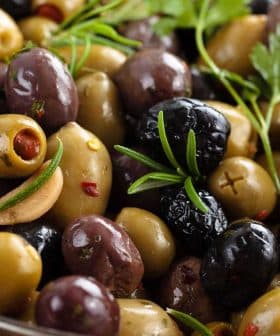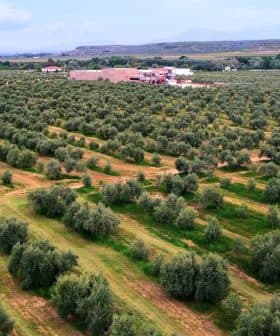Brexit Deal Assures Tariff-Free, but Not Frictionless Trade for Producers

Brexit has finally been realized with a last-minute trade deal between the E.U. and the U.K., providing relief for E.U. exporters exempt from tariffs. Despite changes to trading goods and regulatory compliance checks, the trade deal secures a positive outlook for both parties moving forward.
After years of painful negotiations, Brexit has finally become a reality, with a trade deal agreed between the European Union and the United Kingdom at the eleventh hour.
The fact that a deal was reached and ratified is a relief for E.U. exporters to the U.K. They will be exempt from tariffs, which would have been applied if the U.K. had defaulted to the World Trade Organization (WTO) rules.
The news is good in the sense that there are no fixed tariffs for the United Kingdom importing oils from the European Union.
Rafael Pico Lapuente, the executive director of the Spanish Association of Olive Oil Exporting, Industry and Commerce (Asoliva) told Olive Oil Times, “the news is good in the sense that there are no fixed tariffs for the United Kingdom importing oils from the European Union.”
While there are no changes to tariffs this does not mean it is completely business as usual as some changes to the process of trading goods will occur, as was expected.
See Also:Trade NewsAccording to the European Commission, “As of 1 January 2021, customs rules required under E.U. law will apply to all goods entering the customs territory of the E.U. from the United Kingdom, or leaving that customs territory to the United Kingdom.”
Even though there is a trade deal, goods traded between the E.U. and the U.K. will be subject to regulatory compliance checks. This will mean additional paperwork, such as customs declarations, and this adds an extra layer of complexity for importers and exporters.
“The United Kingdom became a third country like any other, in which it will be necessary to do all the documentation and export requirements from Spain and the European Union to the United Kingdom for imports from third countries of all documentation and phytosanitary certificates that until now there was no need to do,” Pico Lapuente said.
One issue this poses is a delay to goods being processed and cleared through customs. It is a risk but one that should improve with time.
According to the Trade and Cooperation Agreement published by the U.K. government, both parties will “work towards the further simplification and standardization of the data and documentation required by customs and other agencies.”
“At the beginning of everything, there will always be a small delay in the clearance of shipments made to the United Kingdom because you will have to hire customs agents. Also, in the United Kingdom importers will have to process all the necessary documentation for imports at their customs,” Pico Lapuente said. However, he does not believe it will be a big problem.
In any case, Spain has sent olive oil merchandise in advance to the United Kingdom, to mitigate any potential issues.
In terms of competition and changes to the market, the U.K. has already struck up new trade deals with some countries and there will no doubt be more agreed this year.
“We are careful to see how the exports of other producing countries that do not belong to the European Union evolve because they will not have tariffs and the rest,” Pico Lapuente said. “We will adapt without a major problem.”
Meanwhile, Cristina Stribacu, an olive oil producer in Kalamata, Greece, told BBC News, “We are afraid if our product becomes very expensive, maybe the higher prices will influence the situation and people will choose not to have premium olive oil in their diet. However, I want to be very positive and optimistic that the appetite for healthy food will not change in the U.K.”
Overall, the mood is positive. While there will inevitably be some minor delays as the transition to the new process takes place, having the trade deal secured with no tariffs is a big victory for both sides.









